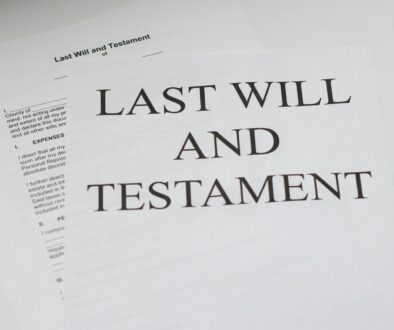Lasting Powers of Attorney (LPAs)
When a person loses mental capacity (whether it be through traumatic accident, Alzheimers or senility), all bank accounts and investment accounts are effectively frozen and inaccessible. Similarly, the other partner would be unable to sell the home, for example, to downsize. In those circumstances, to obtain the necessary consent and authority, the other partner or wider family would have to apply for a Deputyship Order from the Court of Protection. Once a Deputyship is in place annual reports have to be made to the Court and Orders sought for each asset realisation required. In short, this is a protracted, burdensome and expensive procedure, and should be avoided at all costs.
By contrast, by entering into a LPA now, you are appointing your own nominee to deal with those sorts of matters, should the need arise – and circumventing entirely the nightmare which Deputyship entails. There is no ongoing Court involvement or scrutiny with an LPA (other than the initial registration process with the Office of the Public Guardian – the OPG).
Types of LPA
There are two different types of LPA: one deals with property and financial affairs and the other with healthcare and medical decisions. You may make either or both. Making a property and financial affairs LPA is a prudent ‘insurance’ against future difficulties.
Who should I appoint as my Attorney
Spouse plus children is a sensible, practical arrangement for married couples. If you do not have immediate family, trusted and reliable friends would be suitable, preferably younger than you.
It is sensible to appoint Attorneys ‘jointly and severally’ so that any one of them can act alone and without obtaining the others’ approval. This form of appointment has the advantage over a joint appointment in that, if any of your Attorneys became unable to act for any reason or died, the LPA would not fail, but would continue with the remaining Attorneys.
When exercising their powers under either type of LPA your Attorneys must follow the principles of the Mental Capacity Act and always act in your best interests. As a safeguard, the OPG has powers to intervene if abuse or default is suspected.
For further information, please contact John Stockdale.
This article is not intended to be comprehensive or to provide specific legal advice. It should not be relied upon in the absence of specific advice given in relation to particular circumstances. © Bowcock Cuerden LLP 2016




